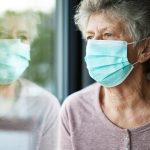NEW STUDY shows social isolation harms brain health, increases risk of dementia
 (NaturalHealth365) Social isolation, “the absence or near absence of social connections or relationships,” and loneliness are not healthy. There is evidence of an association between living socially isolated and adverse health effects, such as depression, anxiety, various physical stress responses, decreased immunity, and more.
(NaturalHealth365) Social isolation, “the absence or near absence of social connections or relationships,” and loneliness are not healthy. There is evidence of an association between living socially isolated and adverse health effects, such as depression, anxiety, various physical stress responses, decreased immunity, and more.
However, researchers have now established a strong link between social isolation and dementia later in life.
Socially isolated people are more likely to develop “later dementia”
The study, published in Neurology, the medical journal of the American Academy of Neurology, used data gathered from the UK Biobank. Researchers found that socially isolated individuals had a 26% greater probability of developing dementia than a socially active person. Those older than 60 are the hardest hit.
Depression was also linked to later dementia in this study, but the link was not nearly as significant as it was with social isolation. This means that even though social isolation can cause depression, it is not depression that can lead to dementia. Instead, it is the social isolation itself that increases the risk factor for dementia and negatively affects brain health.
A 2021 study concluded that the forced social isolation that affected most people during the COVID-19 pandemic initiated a domino effect of repercussions regarding mental health. It examined dementia patients and their caregivers, exploring the impact of that social isolation. More than 50% of dementia patients experienced a decline in memory function; more than 30% felt sadder, while almost 40% experienced an increase in their anxiety symptoms.
This increase in anxiety symptoms caused a rise in dementia symptoms, including agitation, hallucinations, and difficulty in daily life activities. In short, it made the patients’ dementia worse.
CDC knew social isolation was significant health risk and recommended it anyway during pandemic with no sound evidence for its effectiveness to “flatten the curve”
The Centers for Disease Control and Prevention (CDC) cites several studies that point to health risks associated with social isolation in adults over 50. Studies show that social isolation can increase the risk of:
- premature death from all causes
- dementia by about 50%
- heart disease by 29%
- stroke by 32%
- anxiety, depression, and suicide
In addition, heart failure patients who were socially isolated had:
- 4-fold increase in the risk of death
- increased risk of hospitalization by 68%
- increased risk of emergency room visits by 57%
Here is what to do to reduce your dementia risk
There are many steps individuals can take to decrease their risk of dementia.
- Maintain good physical health
- Eat a healthy organic diet
- Monitor blood pressure and keep systolic BP at 130 mm Hg or lower, starting at around 40 years of age
- Reduce exposure to secondhand smoke
- Reduce exposure to air pollution
- Take measures to prevent falls to avoid head injury
- Limit or avoid alcohol consumption
- Don’t smoke or quit smoking
- Keep the brain active with puzzles, lessons, and discussions
- Maintain a healthy weight
- Prevent diabetes by keeping sugar intake very low
- Get 7 to 8 hours of good quality, restful sleep
- Encourage and enforce regular social interaction
Senior centers or senior daycare facilities can be a good way to help adults get some social interaction. In the event of another pandemic with forced isolation, there should be plans in place for older adults who may suffer greatly from loneliness and isolation.
And let’s remember that humans of all ages are social creatures. We thrive on interacting with others. We also know that during the COVID-19 pandemic, social isolation was ineffective in stopping the spread of the so-called “virus.” So in the next round of pandemic, before complying with potentially harmful government-mandated lockdowns, shouldn’t we demand evidence from our health authorities that support the alleged rationale for over-reaching pandemic control measures?
Sources for this article include:
ScienceDaily.com
NIH.gov
CDC.gov
TheLancet.com
Assets.publishing.service.gov



